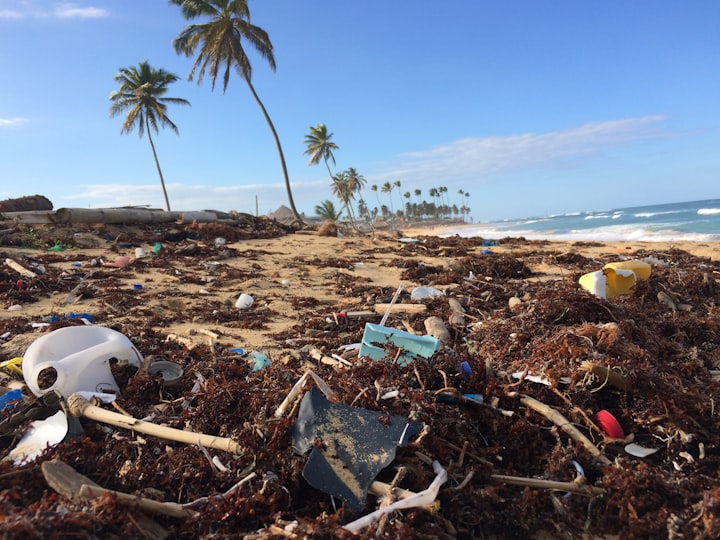Should plastic be banned?
Should plastic be banned?

Prohibition of bags alone will not solve the plastic problem, but it can help change the way plastic is used and make buyers and sellers more open to alternatives. Recent policies, such as the direct blockade of Jakarta and the imposition of sanctions on Japan, are important steps for policymakers to move away from a direct economy that consumes and dumps resources. They can reduce the amount of plastic bags that end up dumping garbage, closing sewers, polluting our environment, decomposing into microplastic pollution, and killing wildlife.
Our Plastic Free New England campaign contains efforts to remove New England with single-use plastic. Like many private organizations, we strive for a plastic-free store and charge you nothing that will prevent you from purchasing plastic bags that will no longer work. The ZF Waste Project for CLF focuses on banning funds and reducing the use of plastics, including used and disposable plastics.
In the United States, California was introduced to plastic bags that were used once in 2016 and the city of San Francisco banned them in 2012, but consumers paid less or no other means such as disposable bags and recycled paper bags. When it comes to taxes, many cities and provinces that do not block or tax taxpayers use plastic bags and do so voluntarily. For example, the recent ban in Seattle is not a single-use plastic bag, but a single and perishable use bag.
In 2010, Washington D.C. introduces a five-cent tax on used plastic bags and encourages consumers to look for alternatives. In addition to reducing plastic bags, taxes raise about $ 2 million a year, in part to fund educational programs in the city and on the river Anacostia. Some states with specific restrictions, such as Delaware, Connecticut, and Oregon, have introduced various restrictions on plastic bags for taxes, levies, or special recycling programs.
Fifteen states - Arizona, Arizona, Colorado, Florida, Idaho, Indiana, Iowa, Michigan, Minnesota, Mississippi, Missouri, North Dakota, Oklahoma, Tennessee, Texas, and Wisconsin - have restrictive laws in cities and regions in the use of their plastic bags. These laws are enforced by varying degrees of success. New York and Hawaii have already lifted their ban on plastic bags and are expected to go into effect in 2020, with California showing that banning plastic bags in 2014 reduces the use of plastic bags (85 percent of customers choose 10 cents to pay for plastic bags and reduce plastic bags). coastal pollution. Other American cities have blocked plastic grass, including Malibu, Berkeley, Seattle, and Miami Beach.
The ban is designed to stop many companies from releasing small bags found in supermarkets, bodegas, and stores. This makes New York the third country to stop them after California, where the ban changed the way millions of people shop, and Oregon, where it went into operation last month. Despite the controversy, the ban on plastic bags is tightening in-laws across the country, with their lawyers pointing to the success of the California plastic bag law as a sign that some states can dispose of plastic bags without harming the local economy and businesses. Instead of increasing the use of other plastic bags, such as free plastic bags in stores, the ban could increase the type of plastic bags people buy to do the same work as free ones.
A study conducted by the Danish Department of Environment and Food in 2018 showed that the production and disposal of plastic bags has a low environmental impact when given six more bags to replace most supermarkets. Research shows that recyclable materials can be reused over a period of time, thus counteracting the pollution caused by the production of other materials, which is less related to the use of plastic bags. Prohibition is incomplete, but it can work: a comparative weight study found that 28.5% of plastic bags were reduced after the ban, eliminating switching to other bags.
A recent study conducted by researchers at the University of Sydney found that the Bag Ban of California led to a similar increase in the use of paper bags, prompting customers to purchase thick plastic bags. Research shows that thicker bags were purchased to replace unused plastic bags such as bins used to collect animal waste. By comparing the weight, studies have shown that 28.5% of plastic bags that have been blocked by the bag have been removed by replacement use for other bags.
The ban on plastic bags can lead to reduced land dumps across the country and contribute significantly to the protection and peace of the area. Important countries such as China, which banned the use of plastic bags five years ago, have reduced the number of plastic bags thrown into the environment by $ 4.5 billion. Such a ban would be required in Bangladesh, where 87,000 tons of single-use plastic is disposed of annually.
In recent years, the question of whether plastic use should be banned has not only been raised more frequently, but as people know more about the damage it does to their environment and the renewed interest in conservation for future generations it is important to understand the causes and effects of plastic and plastic bags. We will focus on the nature of plastic, its impact on the environment, and the growing debate over whether it can be prevented or not. As you may already know, the answer is that the unintentional use of single-use plastic has a high environmental cost and has an impact on our health. Plastic bags pollute the coast, water, and oceans and harm animals and ecosystems.
The youngest supporters are Jakarta, the Indonesian capital, which is the largest polluter of plastic waste at sea, and Japan, which is number one per person in the once-used plastic packaging.
About the Creator
Rosan Pandey
Hi there!





Comments
There are no comments for this story
Be the first to respond and start the conversation.